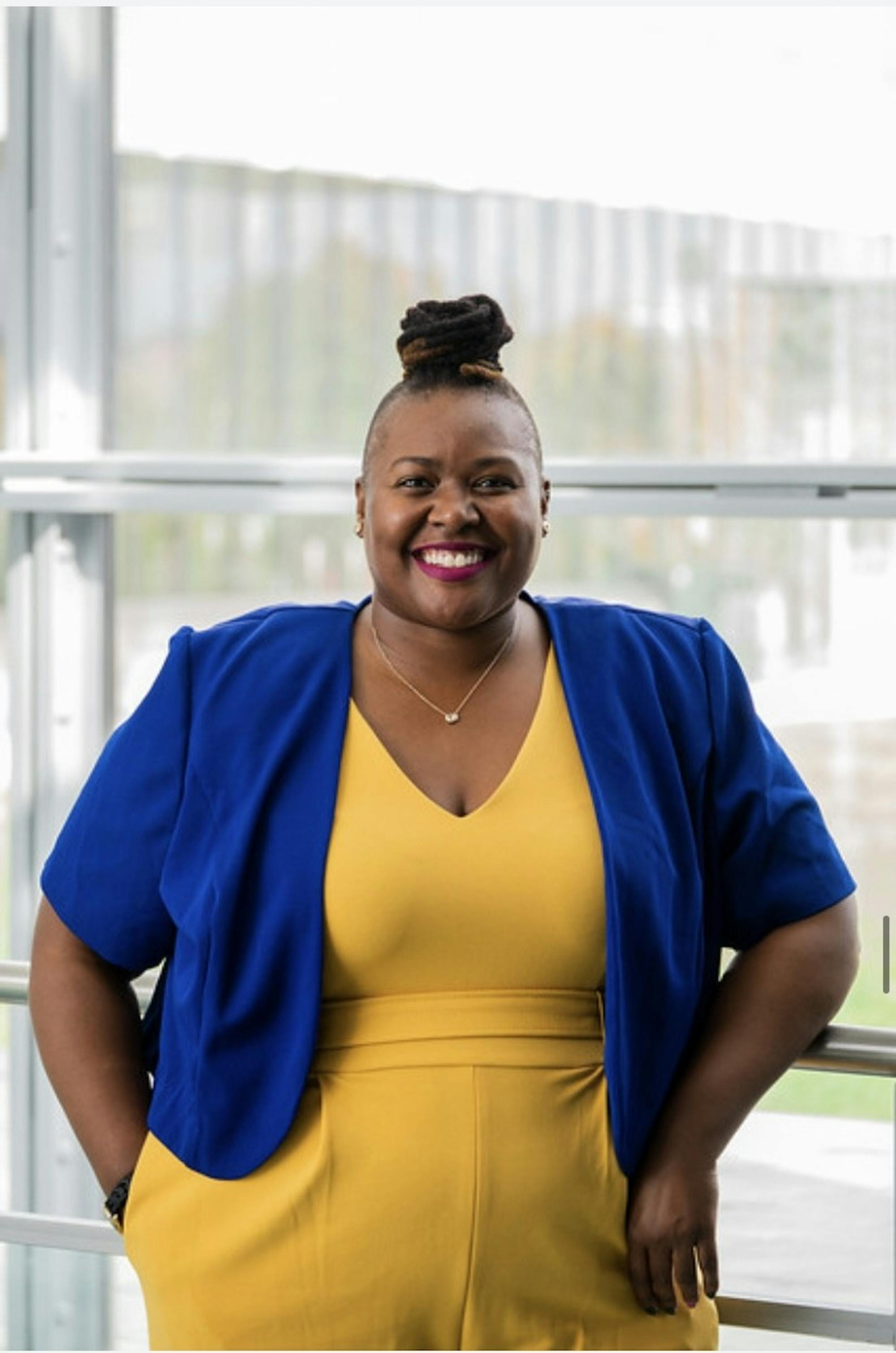Dr. Rachele Hall arrived at the College in February, taking her position as the new Senior Assistant Dean and director of the Office of Pluralism and Leadership. Hall comes from the State University of New York, Westchester — where she served as the interim Dean of Student Life — and said she will be working to identify and address opportunities to improve diversity and cultural competence on Dartmouth’s campus.
The Dartmouth sat down with Hall to talk about her past career experience and what she hopes to accomplish at OPAL.
What motivated you to pursue a career in higher education?
RH: At first, I wanted to be a teacher. I wanted to teach the fifth grade, and you couldn’t tell me that I wasn’t going to. Then, in April of my Junior year [at the State University of New York, College at Oneonta], I was teaching in my small town, sitting in a classroom, when I realized ‘Oh my gosh, there are no bathroom breaks and I’m too sarcastic for small children.’ So I changed my degree to Philosophy, but I had been very involved as a student when I was on campus at [SUNY] Oneonta, and through that I fell in love with higher education. Those experiences that I had in my co-curricular life really ended up dictating what I did with my professional life — so it was an accident, but a happy accident. I am so glad I am here working with college students and helping them to figure out what is next in their lives because I needed that, and that’s what people in student affairs did for me.
Your doctoral research focused on immigration, and you established a training program for allies of undocumented students at your previous institution, SUNY Westchester. Why has immigration been such an important issue for you?
RH: I am not a first-generation immigrant and neither is my family. My family was brought here by slavery like most Black Americans. But in my work in higher-ed, I have come in constant contact with students who come from undocumented immigrant families. So on campus, I found myself trying to support those students in a secret way, because they are a hidden population. I realized when I got my chance to educate myself and pursue my doctoral degree that I had this power and privilege that this hidden population does not.
Most often, what you see is migrants who have gone through the legal process of getting married and getting a visa advocate for their community, but rarely do you see people who were born as American citizens advocate for migrants without proper documentation. But we all need to be advocating for humankind. This country was built on the backs of people who migrated here or were brought here on ships, so why do we now have these rules and policies to keep migrants away? Researching how to support them led to my research, and it led to my [ally] training later.
What made you decide to depart SUNY Westchester and come to Dartmouth?
RH: I never wanted to leave Westchester. I was like, ‘I’m going to be president of this college one day,’ and it just didn’t work out that way. I knew I didn’t want to be completely away from students, because that is what happens sometimes when you move up in higher-ed — you move away from working with students. But I also wanted to be in charge of an office, and that just didn’t present itself to me at Westchester. I was really intentional about what I wanted next in my life: having a Black female supervisor and having professional development opportunities. That all came to a head with Dartmouth and this opportunity at OPAL. I know the students are brilliant here, and I am excited to learn from, and with, them.
What are your goals for your tenure at OPAL?
RH: My first goal is to connect with my staff. We have some vacancies in the office, and so I am thinking about how we can intentionally fill those spaces — I don’t want to just be recruiting people into spaces. Then, I want to build collaborative relationships with the rest of campus. Because of the pandemic and the hybrid model, we have gotten away from doing things in-person and have become interested in Zoom everything, but I’m all about showing up at your office.
My last goal is to make sure that students across campus know what OPAL is. Whether or not they identify with any of the affinity groups on campus, I want students to know that they can still participate with OPAL. I want us to get out of the idea that you have to check a box to fit into a box. I probably said this goal last because it will take more time than the others: It is definitely a cultural shift — to show people that they can be a part of something even if they identify as something else.
The article has been edited and condensed for clarity and length.
Correction Appended (Feb. 16, 10:20 p.m.): A previous version of this article incorrectly stated that Dr. Hall is the senior assistant dean of the Office of Community Life and Inclusivity. Dr. Hall reports to the Associate Dean of Community Life and Inclusivity but does not herself hold a dean position with the office. The article has been updated.




